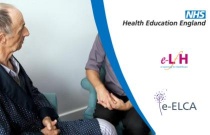Sickle Cell Disease I: Genetics and Diagnostics
Dr Maurice Okao, Dr Anjumanara Omar, Barbara Couper, Karla Wentzel, Dr. Sam Brophy-Williams, Dr. Vivian Paintsil - Head, Dr. Alimatu Salam, Head, Mrs. Mary-Ethel Lamptey, Mrs. Afia Achiaa Asamoah Owusu
Sickle Cell Disease: Genetics and Diagnostics is a course that provides healthcare workers with a foundational understanding of sickle cell disease. The course features interactive content that will explain what sickle cell disease is and the genetics underlying this inherited blood disorder. Finally, the importance of addressi....
Sickle Cell Disease IV: Acute Management in Children and Adolescents
Dr Maurice Okao, Dr Anjumanara Omar, Barbara Couper, Karla Wentzel, Dr. Sam Brophy-Williams, Dr. Vivian Paintsil - Head, Dr. Alimatu Salam, Head, Mrs. Mary-Ethel Lamptey, Mrs. Afia Achiaa Asamoah Owusu
Sickle Cell Disease: Acute Management in Children and Adolescents will support your skills and knowledge in managing children presenting acutely with SCD and its related complications. The course features interactive content that will provide healthcare workers with the knowledge they need to improve care, quality of life, and....
Medical Errors and Patient Safety
Dr. Hugo Yeste, and Vanieth S. Mrashani
This course provides crucial training on medical errors, focusing on understanding how and why these errors occur importantly on how healthcare providers can prevent them. The training addresses both individual and system factors that lead to errors, as well as practical strategies for improving safety in clinical settings. The....
Module 1: Disaster Management Cycle: Pediatric Considerations
Debra Weiner, and Dr. Amos Solomon
This module provides an overview of disasters and the disaster management cycle and the specific requirements for pediatric populations, equipping healthcare professionals, emergency responders, and policymakers with the knowledge and skills necessary to protect and support children during disasters.
Assessment and Management of Weight Loss and Loss of Appetite
Kathleen Sherry
This session gives a framework for assessing and managing loss of appetite (anorexia), weight loss and cachexia in patients near the end of their lives. This session was reviewed by Alice Gray and Richard Kitchen and last updated in January 2021.
Assessment of Mood
Annabel Price and Max Henderson
This session provides a framework for the assessment of mood as an essential first step to appropriate management of depression.
SESSION 8: Climate Change, Mental Health and Forced Migration
Dr Samson Mhizha, and Elaine C. Flores
This session delves into the profound impact of climate change on the incidence and prevalence of stress disorders, depression, anxiety, suicide, domestic abuse, violence, aggression, and substance abuse as a consequence of fast and slow onset climate-related disasters. Through case studies and discussions, participants will gai....
Symptom Management in People With Learning Disabilities
Regina McQuillan and Karen Ryan
This session identifies issues when providing palliative and end-of-life care for people with learning disabilities and how these can be addressed.
Communicating the Plan of Management and Care
Jenny Smith, Clare Rayment
This session discusses the different aspects that need consideration in effectively communicating the management plan to the patient and family/carers, and to all professionals and services involved in the patient’s care. This session was reviewed by Richard Kitchen and last updated in December 2020.
Influence of Transition Points and Crises on Decision-Making in Symptom Management
Dee Traue
This session discusses how to deal with transition points and crises, both in terms of initial management options and how these options can be explained and discussed with patients approaching the end of life and their relatives and carers. The ways in which these transition points and crises influence decision-making in symptom....
Management of Cognitive Deterioration
Leena Srivastava and Mary Comiskey
As the end of life approaches, patients with either advanced cancer or other progressive life-limiting illnesses may experience a reduction in their cognitive function, such as forgetfulness, confusion or agitation. This session provides a framework for the management of diminishing cognitive function.
Management of Sore Mouth and Other Oral Problems
Sim Lan Koon and Jason Ward
Oral problems can impact greatly on the quality of life of patients receiving end-of-life care. This session provides a framework for the assessment and management of a sore mouth and other oral problems.
General Approach to Assessment of Symptoms
Howard Evans
This session provides a general approach to the assessment of symptoms, an essential first step before a plan for symptom management and care can be started.
Intersection of Nutrition with WASH and Climate Change
Centre for Global Child Health at The Hospital for Sick Children (SickKids) in Toronto, Canada
This course, designed for health professionals, examines the crucial connection between Water, Sanitation, and Hygiene (WASH) and nutrition. Participants will gain practical skills in promoting key WASH behaviours, including food hygiene, water safety, and sanitation. The course also explores the impact of climate change on nutr....
Postpartum Intra Uterine Contraceptive Device (PPIUCD)
the United States Agency for International Development
We will be learning about one component of postpartum family planning called PPIUCD insertion. Postpartum family planning (PPFP) defined as initiation and use of family planning methods immediate after delivery up to one year: Family planning is very important during this period to avoid unplanned pregnancy and to allow a....
Essential Care for Small Babies
Safiatu Fuday, Senesie Margao
The small baby needs all the steps of essential newborn care to prevent problems and recognize them promptly. Observation of early feeding attempts and findings on the initial assessment (weight, temperature and exam) will also help the provider plan how to support the special needs of a small baby. Actions to prevent infection....
Antenatal Care Second and Follow-Up Visits
Dr. Juli Reynolds PhD
Neo Consult This course is designed for midwives and nurses working in antenatal wards.. The session includes:continuity of care;monitoring physical, psychological, spiritual and social well-being of the woman and family throughout the childbearing cycle; providing the woman with individualised education, counselling and ant....
Management of Important Complications in Newborns
Dr. Juli Reynolds PhD
Neo Consult This course has been developed for Midwives and Nurses who work with Mothers and newborn babies. The course will provide you with the up-to-date, evidence-based knowledge, required to care of healthy and high-risk newborn infants in hospitals, clinics and in the community.
Congenital Diaphragmatic Hernia (CDH) in Neonates
Dr. July Reynolds PHD
Congenital diaphragmatic hernia (CDH) is a serious congenital abnormality associated with: Pulmonary hypoplasia, worse on the ipsilateral side. Structural and functional lung immaturity. A reduction in pulmonary arteriolar cross-sectional area. Muscular hyperplasia of remaining pulmonary arterioles. An association....
Neonatal Hyper Bilirubinemia
Dr. Juli Reynolds PhD
Neo Consult The lecture is designed for nurses caring for newborns in the Neonatal Intensive Care Unit. By completing this lecture, the learner will obtain the knowledge and skills to perform a systematic approach to assessment, and management of jaundice, as well as prevention of severe neonatal hyperbilirubinemia. Through....
Basic Resuscitation of the Newborn
Dr. Juli Reynolds PhD
Neo Consult This course has been developed to provide instruction in the resuscitation of babies at - and immediately after - birth. It is designed for all health workers, regardless of their discipline or status, who may be called upon to assist during resuscitation of a newborn baby. This is a basic resuscitation course an....
Ten Steps to Successful Breastfeeding (UNICEF/WHO BABY FRIENDLY INITIATIVE)
Dr. Juli Reynolds PhD
Neo Consult This course has been developed for nurses working in the Neonatal Intensive Care Unit. The course will enable you to develop your performance in practice, theorise practice and develop the knowledge and skills required to be competent in the role of a neonatal intensive care nurse.
Assessment of Fetal Growth and Condition During Pregnancy
Dr. Juli Reynolds PhD
Neo Consult This course is designed for midwives and nurses working in antenatal wards. The session includes: Normal Fetal Growth, Causes of Growth Restriction, Monitoring Fetal Movements, Decreased Fetal Movements.
Respiratory Distress
Dr. Juli Reynolds PhD
Neo Consult This course is developed for nurses who care for critically ill infants in the Neonatal Intensive Care Unit. Topcis covered: 1. Definition of RDS. 2. Clinical Signs and Symptoms of RDS. 3. Management of an infant with RDS.
Thrombocytopenia in Neonates
Dr. Juli Reynolds PhD
Neo Consult This course has been developed for nurses working in the Neonatal Intensive Care Unit. The course will enable you to develop your performance in practice, theorise practice and develop the knowledge and skills required to be competent in the role of a neonatal intensive care nurse. Target Audience: - Neonatal....






















